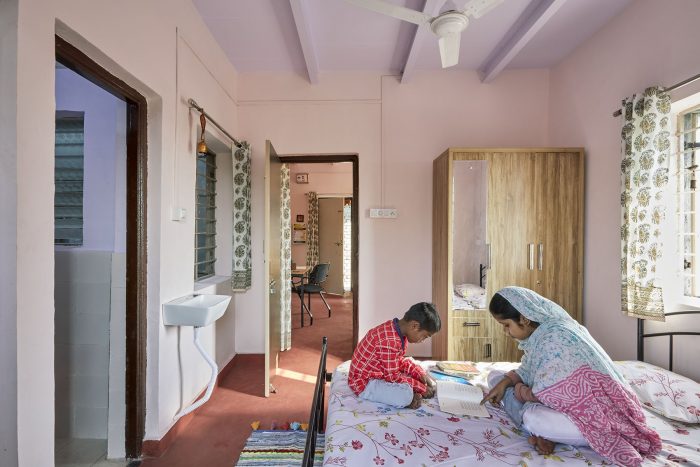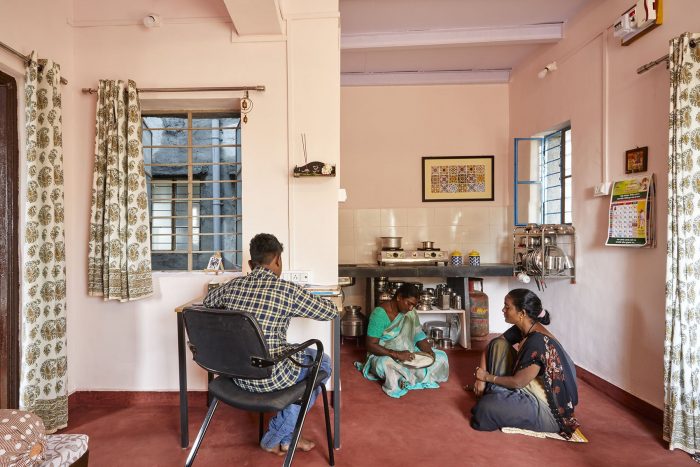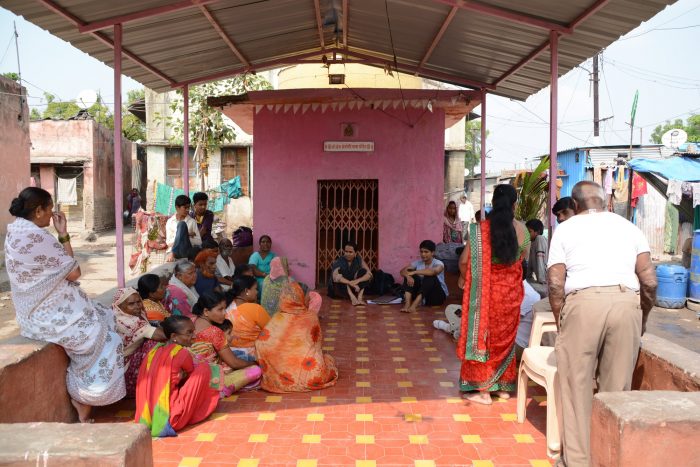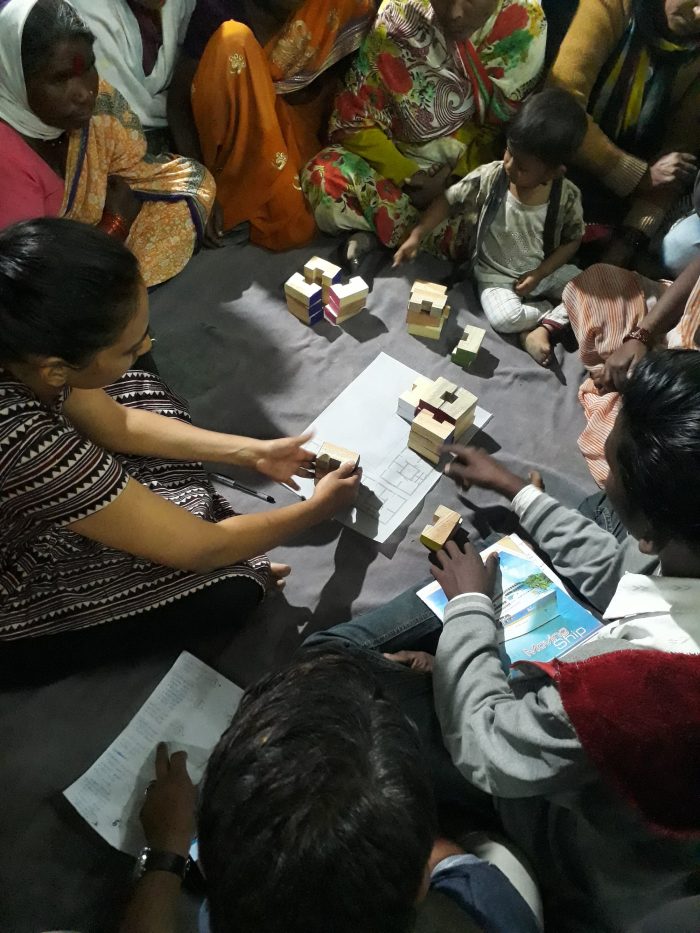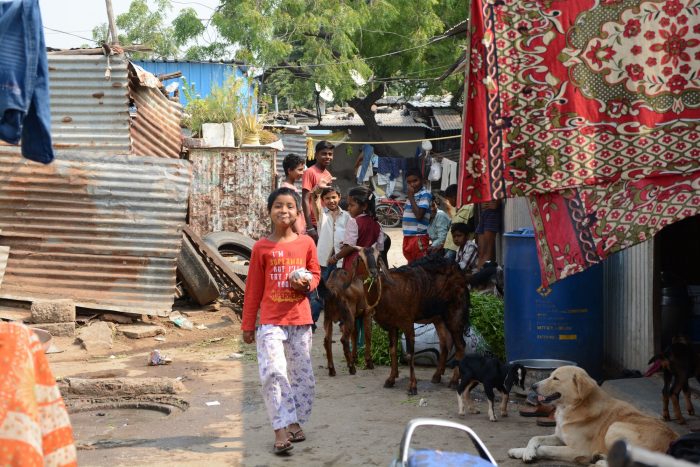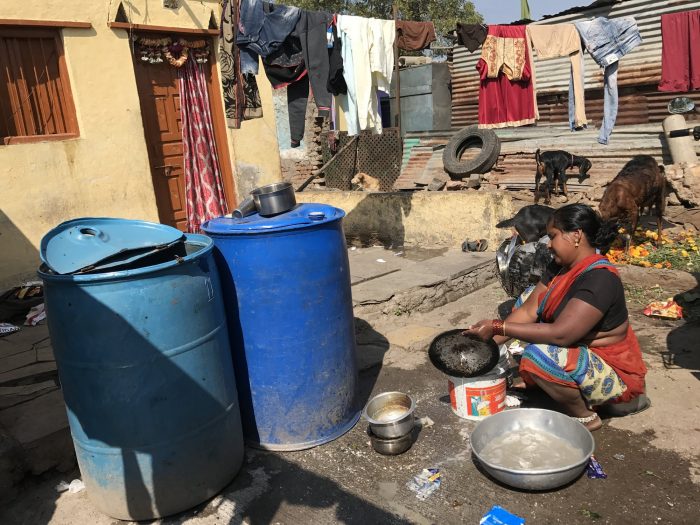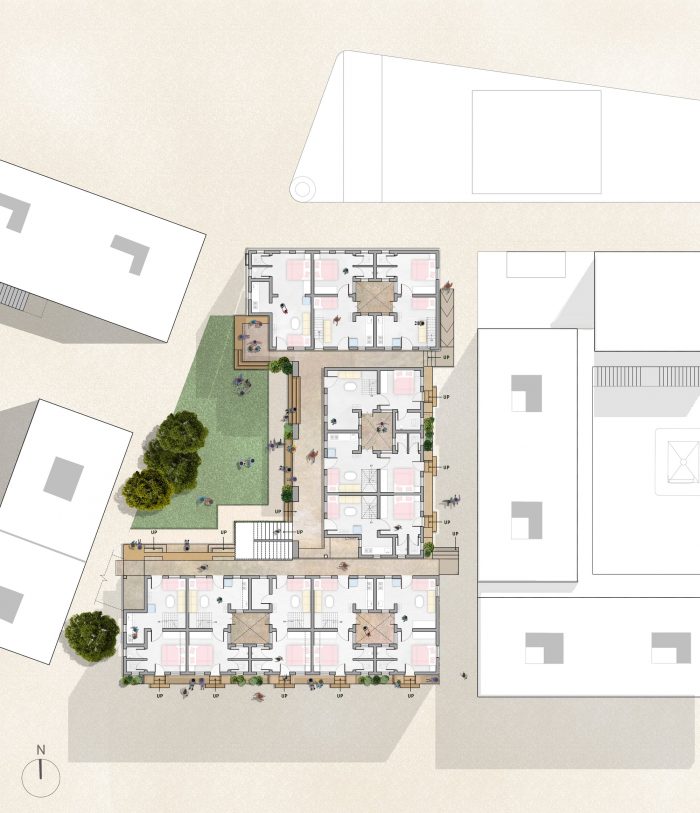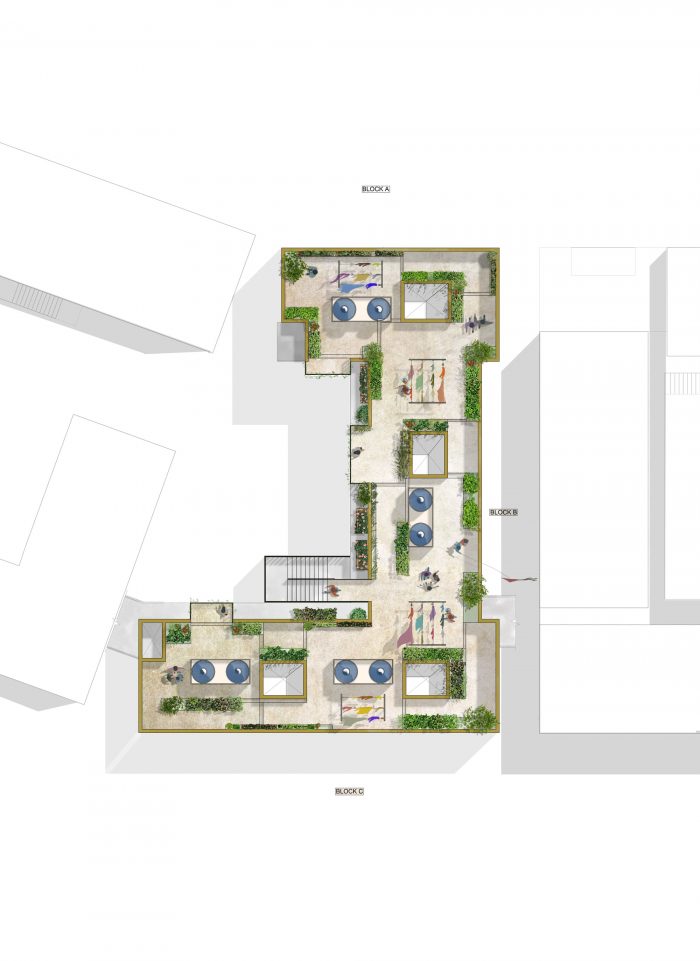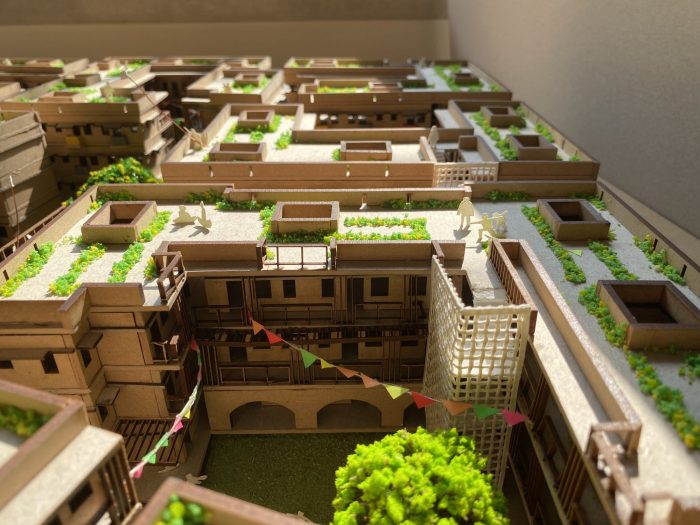Sanjaynagar贫民窟重建项目是马哈拉施特拉邦Ahmednagar的一项原地举措,由位于孟买的社会设计和建筑工作室社区设计机构(CDA)实施。CDA与艾哈迈德纳格尔市政公司(AMC)和当地非营利组织Snehalaya合作开展该项目。
The Sanjaynagar Slum Redevelopment Project is an in-situ initiative in Ahmednagar, Maharashtra, implemented by Community Design Agency (CDA), a Mumbai-based social design and architecture studio. CDA is working in partnership with Ahmednagar Municipal Corporation (AMC) and local non-profit Snehalaya on the project.
Sanjaynagar是一个由298个家庭组成的贫民窟,被限制在2英亩的范围内,是一个充满活力、多样化、关系紧密的社区,目前生活在贫民窟的条件下,没有基本的基础设施和公用事业服务。该项目于2018年11月破土动工,由33户家庭组成的第一栋建筑于2022年3月完工。该项目第二阶段的建设,包括265套住房,预计将在今年晚些时候开始。该项目是一个公共/私营合作项目,部分资金由印度政府通过其全民住房计划(PMAY- Urban)提供。AMC和总部设在美国的咖喱石基金会也提供了资金,还有居民自己。该项目的额外资金正在通过慈善捐款筹集。
A slum of 298 families confined to 2 acres, Sanjaynagar is a vibrant, diverse, and strong-knit community currently living in slum conditions without basic infrastructure and utility services. The project broke ground in November 2018, and the construction of the first building, comprising 33 homes, was completed in March 2022. Construction of the second phase of the project, comprising 265 homes, is expected to begin later this year. The project is a public/private partnership that is partly funded by the Indian government through its Housing for All (PMAY- Urban) program. AMC and the US-based Curry Stone Foundation also contributed funds, along with the residents themselves. Additional funding for the project is being raised through philanthropic donations.
目前对低收入住房的思考倾向于优先考虑单位的数量,导致非个人化的高层建筑,使其退化而不是支持它们所要服务的社区。CDA认为,解决住房不平等问题不仅仅是建造单个单元。它是关于建设社区;创造一个安全、健康的私人和公共空间的平衡,加强固有的社会纽带,使人类繁荣。
Current thinking on low-income housing tends to prioritize the number of units, resulting in impersonal high-rise structures that degrade rather than support the communities they seek to serve. CDA believes that addressing housing inequality is more than building individual units. It is about building communities; creating a balance of safe, healthy private and communal spaces that enhance inherent social bonds and enable human flourishing.
通过高度可复制的参与式规划和设计过程,Sanjaynagar的居民对所有规模的设计决策做出了贡献,从社区层面到个人住宅的定制。298个住宅单位被安排在8栋G+2楼。为了加强贫民窟的社会基础设施,这些建筑围绕着八个大小不一的院子。建成后,Sanjaynagar将成为一个功能齐全的社区,拥有所有必要的设施,包括供水、排水、道路、街道照明、儿童保育和社区中心、健康娱乐的庭院以及可食用的屋顶花园。在项目结束时,它将不再是一个贫民窟。
Through a highly replicable participatory planning and design process, the residents of Sanjaynagar have contributed to design decisions at all scales, from the neighborhood level to the customizations in their individual homes. The 298 dwelling units are organized into 8 G+2 buildings. To enhance the social infrastructure of the slum, the buildings are organized around eight courtyards of varying sizes. When completed, Sanjaynagar will be a fully functional neighborhood with all essential amenities including water, drainage, roads, street lighting, childcare and community centers, courtyards for healthy recreation, and edible rooftop gardens. At the end of the project, it will no longer be a slum.
除设计外,该项目还注重建筑质量,牢记当地的土壤(黑棉)和天气条件。该建筑有承重、加固的砖石墙,并采用了当地的木板和托梁板系统。在整个建筑中加入了竹屏和凉亭等元素作为遮阳装置。宽阔的走廊被设计为社会互动的公共空间,以及自然采光和充分的通风。
In addition to design, the project has also focused on the quality of construction, keeping in mind the local soil (black cotton) and weather conditions. The building has load-bearing, reinforced masonry walls, with a vernacular plank and joist slab system. Elements such as bamboo screens and pergolas have been added as shading devices throughout the building. The wide corridors have been designed to have common spaces for social interactions, as well as for natural lighting and adequate ventilation throughout.
CDA现在正与第一座完工的大楼的居民合作,制定一个定期维护和保养的长期计划。它致力于帮助社区完成向正式住房的过渡,并为他们提供必要的信息和工具,以便作为一个合作住房协会有效运作。Sanjaynagar的重建说明了参与式设计的变革力量,以及建筑环境对健康和福祉的影响,还有边缘社区的社会凝聚力和复原力。
CDA is now working with the residents of the first completed building to develop a long-term plan for regular maintenance and upkeep. It is committed to handholding the community through this transition into formal housing and equipping them with the information and tools needed to operate effectively as a cooperative housing society. The redevelopment of Sanjaynagar illustrates the transformational power of participatory design and the impact that the built environment has on health and well-being, as well as the social cohesion and resilience of communities on the margins.
Architects: Community Design Agency
Area : 1431 m²
Year : 2022
Photographs :Rajesh Vora
Electrical Consultants : Vidyutsallagar Pvt. Ltd.
Landscape Architecture : Integrated Design
Architectural Design & Project Management Partner : Community Design Agency
Social Partner : Snehalaya
Funding Partner : Curry Stone Foundation
Housing Finance : Rang De
Pmay Support : Ahmednagar Municipal Corporation
Plumbing Consultants : Phoenix Consultants
Concept Design : Hunnarshala Foundation
City : Ahmednagar
Country : India







